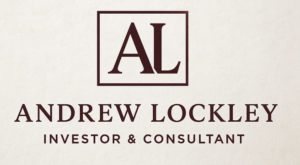Many entrepreneurs wonder when’s the right time is to start raising money. There are two simple answers worth considering:
The first, rather glib answer is that if you’re asking the question, then it’s probably too early. Generally speaking if you *can* avoid raising and continue, then you should. You will almost always get a better valuation of your company after extended development. Furthermore, you’ll put investor capital at lower risk, which saves you from unnecessary red-faced explaining when you’ve lost your angel’s nest egg.
Secondly there’s an alternative approach which attempts to give a more systematic answer on timing. It’s all about validation – and what stages of this process are needed. The three points of validation which I would argue are required before a business is typically ready to raise money are the following: ideate, initiate and demonstrate. Let’s consider what each of these mean:
Ideate
Commonly entrepreneurs tend to start thinking about raising during the ideation phase. This is where you start to evaluate the market opportunity and develop the business model. However this is almost never the right time to raise funding.
Initiate
Secondly, there’s the initiation stage – where the business is constructed as a functional entity. Typically the intitation stage will be marked by things like: growing the team; setting up a website; and developing some kind of basic demonstration product. In most cases, it’s unwise to raise money at this stage. However, most businesses do start looking for funding at this stage. It’s a good time to start investor conversations, but it’s still rarely the right time to actually close. However, many founders fall into the trap of believing that they will raise money at this stage. The investors you get at this stage will often be ‘dumb money’, who will prove to be an impediment to later raising, as they don’t have any sector experience or credibility.
Demonstrate
The demonstration stage is marked by traction. This is when the business will be winning customers and testing its assumptions about virality, churn and marketing costs. Its at the *end* of this demonstration stage when the business is normally ready to raise funding. At this period in development much of the risk of the project has been eliminated. Not only has the traction been demonstrated – but also the team’s ability to work together and deliver product has been proven. Finally, at this stage it is rare that competitors are uncovered which have a major effect on the businesses future direction. Normally computing businesses are spotted during the first two stages.
So as a rough rule of thumb: if you haven’t gone through the stages of ideation, initiation and demonstration, then you’re probably raising too early. If you’re asking the question, you can also probably hang on a bit longer – ideally until you get comfortably above break even. But that’s another story…
